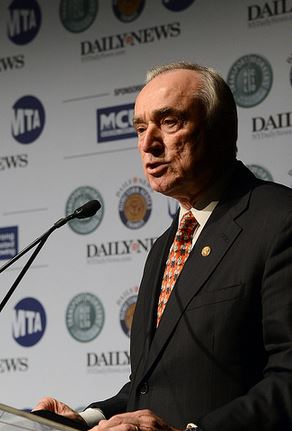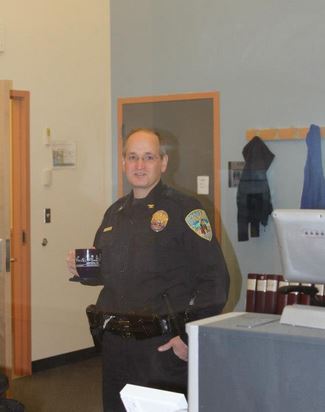A Powerful Cop Just Defended Your Right to Smoke Pot

By:
Washington, D.C. Police Chief Cathy Lanier became a champion for the pro-marijuana community last month when she criticized pot prohibition.
"All those [marijuana] arrests do is make people hate us," Lanier told the American News Women's Club, as reported by The Daily Beast. "Marijuana smokers are not going to attack and kill a cop. They just want to get a bag of chips and relax. Alcohol is a much bigger problem."
Though Lanier added that she doesn't think marijuana is healthy, her job isn't to tell people what they can and can't consume, "I'm not policing the city as a mom. I'm policing it as the police chief — and 70 percent of the public supported this." Lanier had broached the subject a month earlier as well, telling NewsChannel8, "Marijuana possession has never been a big arrest category. If you’re arrested for possession of marijuana, typically we get it because there’s some other charge and then we find the marijuana in a search upon arrest."
Are Lanier's comments part of a growing trend among people working in law enforcement or is she an outlier? Here's what other law enforcement personnel have had to say.
NYPD Police Commissioner William Bratton
MTA Photos/Flickr
After a spike in New York City shootings, NYPD Commissioner William Bratton said that weed plays a role in the city's violence.
"The seemingly innocent drug that's been legalized around the country," he said at a press conference. "In this city, people are killing each other over marijuana more so than anything that we had to deal with in the 80s and 90s with heroin and cocaine. We just see marijuana everywhere when we make these arrests, when we get these guns off the streets."
South Portland (Maine) Police Chief Edward Googins
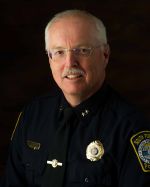
Last year, the police chief of South Portland, Maine, Edward Googins, spoke out against potentially legalizing marijuana in his state.
"Marijuana and other drug use and abuse are intertwined with most criminal incidents we investigate. It is not a harmless drug. It is addictive," he said.
Googins added that legalizing pot would increase minor accessibility to the drug, citing a fellow officer whose teen somehow got ahold of his father's medical marijuana.
"[U]se by adults makes it seem normal for kids and increases access. I do not want to see marijuana more accessible to youth in our community. We need to set an example for them."
Former Seattle Police Chief Norm Stamper
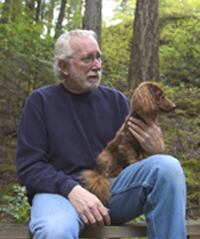
Former Seattle Police Chief Norm Stamper joined the Law Enforcement Against Prohibition nonprofit, which is made up of former and current law enforcement personnel who support marijuana legalization. Stamper told the Alaska Dispatch News in 2014, "Prohibition is responsible for far more crime, greater levels of violence and police resources than any kind of good that comes from those laws."
Nome (Alaska) Police Chief John Papasodora
The Nome Police Department Facebook
Before the state of Alaska passed Ballot Measure 2, which made marijuana legal for people over 21, many police chiefs opposed it. A few months before the measure passed, Nome Police Chief John Papasodora expressed concerns over what this would mean for Western Alaska, where many arrests are tied to substance abuse issues.
"We already have the highest arrest rates of any Alaska community,” Papasodora said in October. “I can see that increasing [if Ballot Measure 2 passes]."
San Miguel County (Colorado) Sheriff Bill Masters
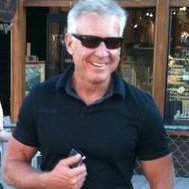
After six Colorado sheriffs banded together to sue the state for legalizing marijuana, arguing that the state law would force them to break federal law, San Miguel County Sheriff Bill Masters said in an interview with The Cannabist that "[w]e don’t have marijuana detox patients [in jail]. We have alcohol patients. In fact, we’ve never had a marijuana detox patient. We’ve never had to hold someone because the person was so messed up on marijuana that they had to go to the clinic and get some kind of sedative. Alcohol is still the big problem. It’s our No. 1 problem in jail and anywhere else, and that sadly hasn’t changed."
This message is consistent with a 2002 interview Masters did with Alternet, "[M]arijuana should just be legalized, except you shouldn't be blowing dope in your car or consume it in public. Same as alcohol. We don't allow people to walk around our town drinking liquor. I don't want my kids exposed to this stuff. That's why you have bars or your own home. I would concentrate law enforcement resources on things like driving under the influence, you have to keep that aspect of it. You can't be harming others."
Houston Police Chief Charles McClelland.jpg?auto=format&crop=faces&fit=crop&q=60&w=736&ixlib=js-1.1.0) YouTube
YouTube
Houston Police Chief Charles McClelland said during the radio show Cultural Baggage last year that the war on drugs was a "miserable failure," saying "In my opinion, the federal government must take the lead into setting our drug policies, otherwise you will have all of these different states or different local, state governments coming up with different policies when it comes to certain drugs such as marijuana.
McClelland said the federal government should be held responsible for determining the risks of marijuana.
"The federal government still classifies marijuana as a Schedule I drug, and it's a federal crime; it's very difficult for states to [legalize] in a way that it doesn't put law enforcement in conflict with enforcing their oath of office. And that's why the federal government has to decide: Is marijuana just as dangerous as cocaine, heroin? I don't know, but they're going to have to do that. And if it's something that should be changed, then take it off the list [of banned substances]."

